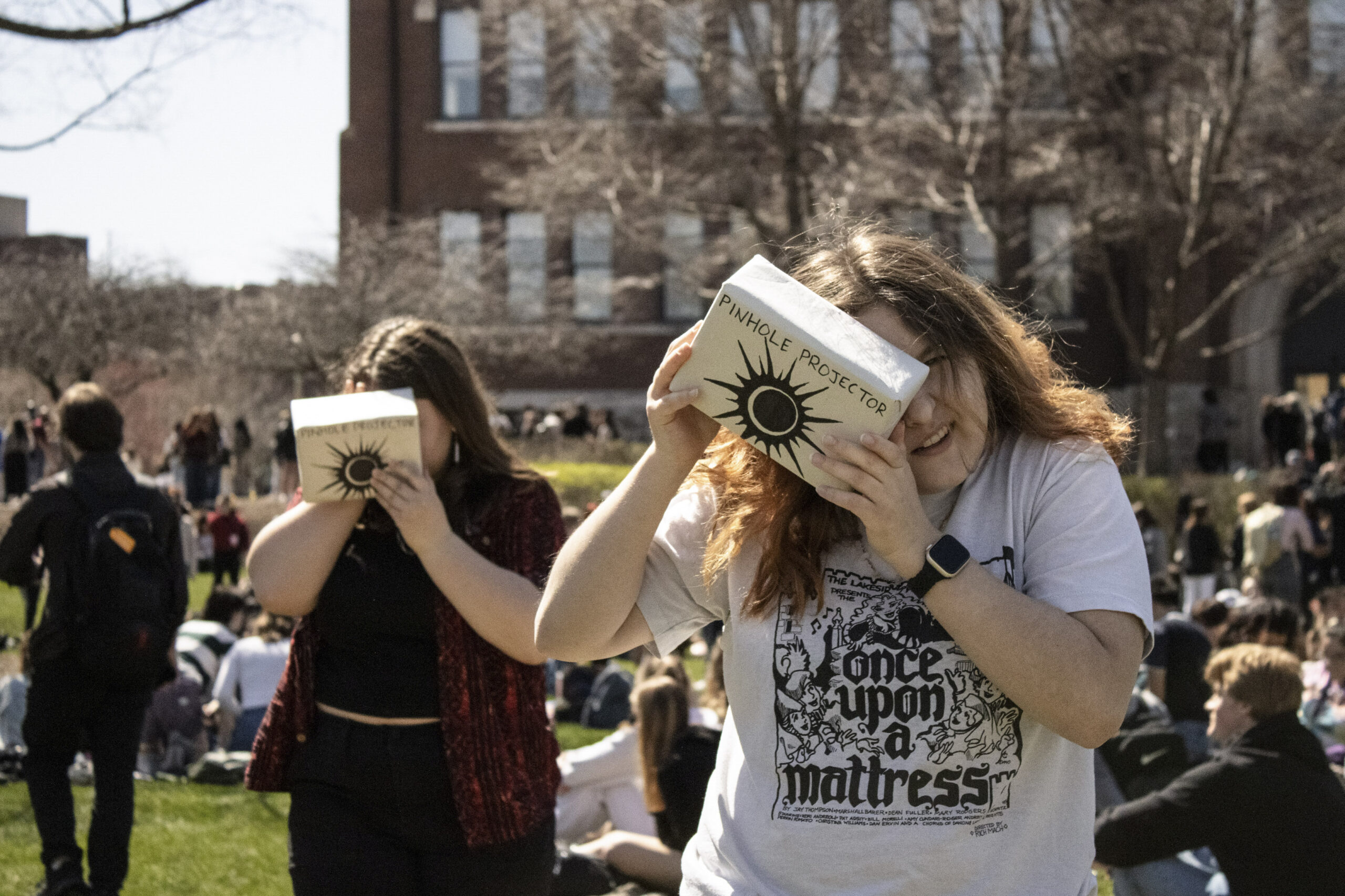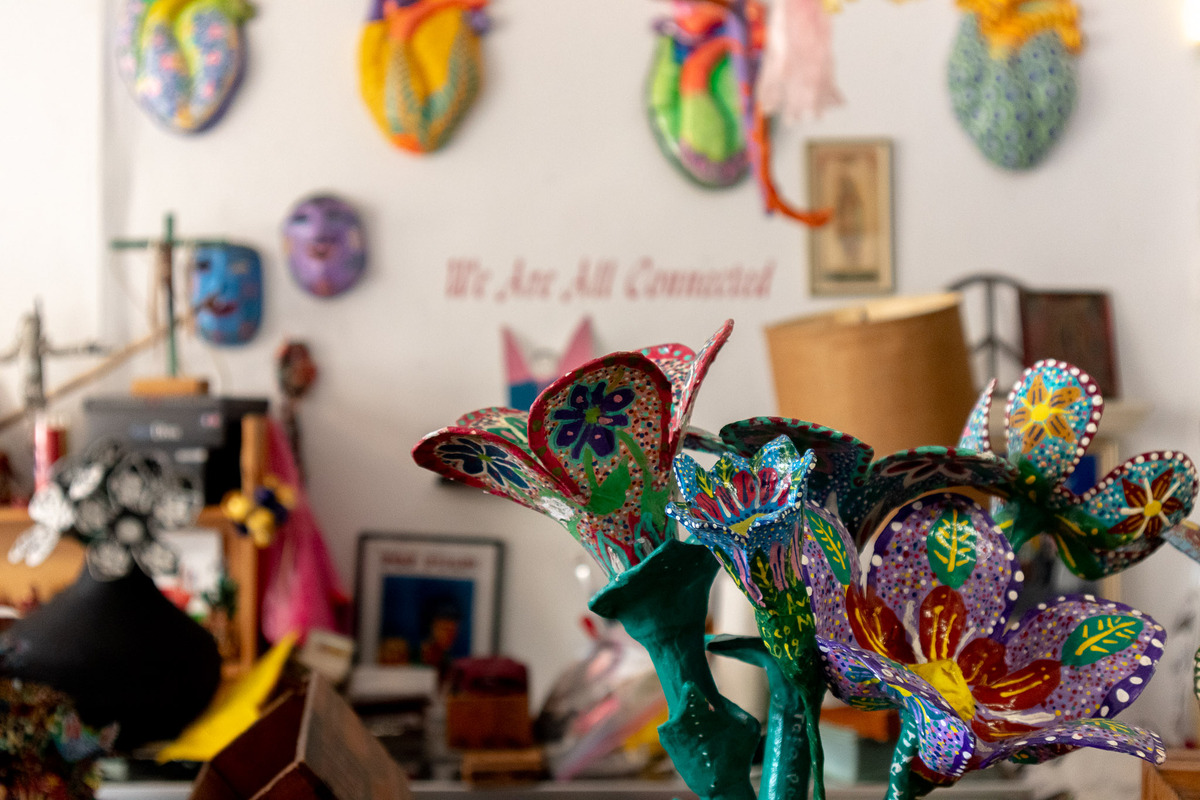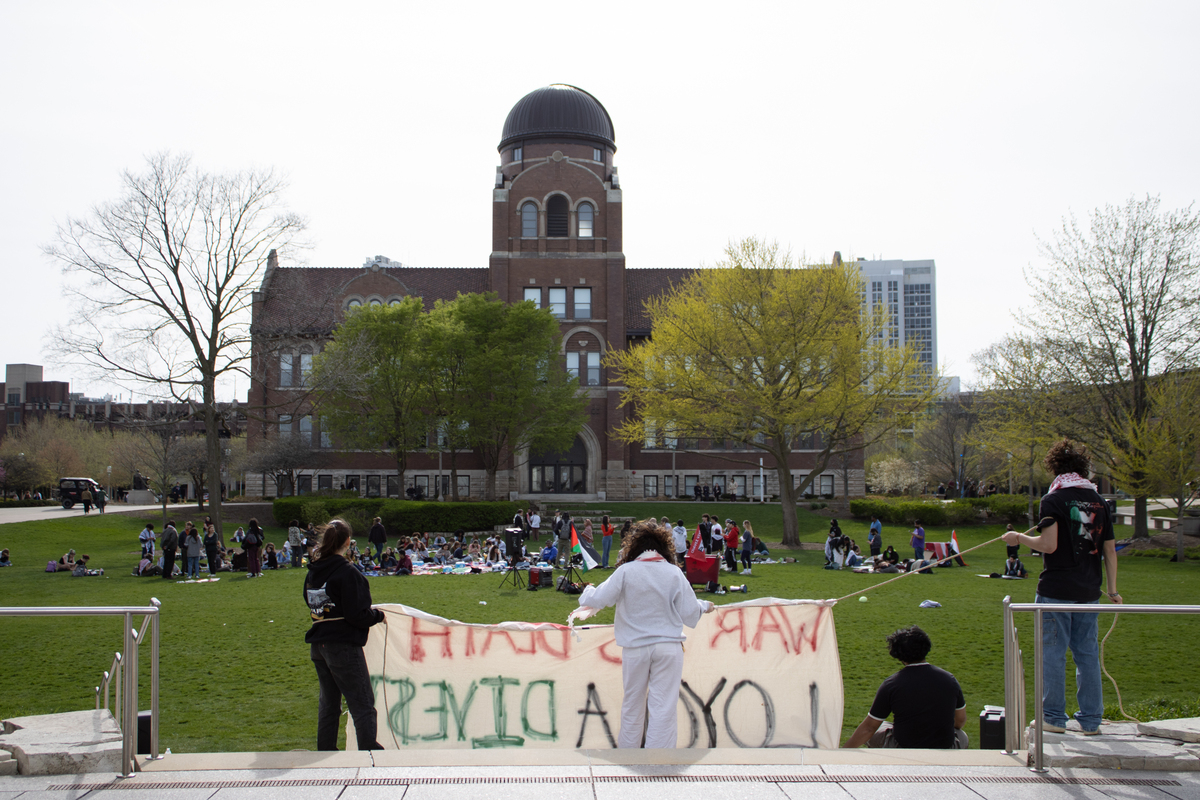Writer Maura Green talks about Loyola’s decolonization efforts.
Essay: Evaluating Anti-Racism and Decolonization at Loyola

As a social work major, the “-isms” are discussed regularly in classes — racism, sexism, ageism, ableism, heterosexism, classism and ethnocentrism. Each of these “-isms” are conscious and unconscious biases that cause inequalities and discrimination in society, according to the National Association of Social Workers.
However, there’s one crucial “-ism” that is consistently missing from course materials — colonialism.
Prior to taking HONR 203B: The United States Experience: Race and Racisms this semester, hardly any of my professors touched on colonialism — let alone coloniality — other than it being horrible and a marker of our country’s historical racism. Coloniality, the modern extension of colonialism, is demonstrated through long-standing patterns of power in society between a minority and a majority group.
So when my HONR 203 professor began class during the first week of the semester with the phrases, “I’m a racist,” and, “We are all colonizers,” I was taken aback. It seemed like an extreme approach to kick off the fall semester, especially compared to my social work professors’ typical self-reflections about unlearning their biases.
I was accustomed to acknowledging my prejudices and biases, not my role as a colonizer.
As the semester and my HONR 203 class comes to an end, I’m more aware of how I need to improve to become less of a colonizer and more of an antiracist — and how Loyola, as an institution, needs to practice what is preached in their classes.
In his book “The Darker Side of Western Modernity,” Walter D. Mignolo wrote that coloniality and modernity are “two sides of the same coin” — one can’t exist without the other. Coloniality is embedded into capitalism, common linguistics and racialized systems — and universities.
Loyola, like many other Jesuit universities, has a land acknowledgement statement — formally announced in 2022 — to compensate for the Jesuits’ settler colonialist history towards Indigenous peoples. Loyola “acknowledges its location on the ancestral homelands of the Council of the Three Fires (the Ojibwa, Ottawa, and Potawatomi Tribes)” on their website. The Cudahy Library mural of the Jesuit’s missionary pursuit across the Great Lakes and new signs along the lakefront trail on campus are physical representations of Loyola’s land acknowledgement.
These university initiatives are labeled as an “acknowledgement” and remain merely that — an acknowledgement and a Band-Aid solution rather than greater anti-racist efforts.
Loyola’s current Anti-Racism Initiative calls for “us to hold ourselves accountable” as antiracists to address racism’s foundational pillars to our country and its current maintenance in society. However, based on what I learned in HONR 203, their current anti-racist efforts are insufficient — they’re centered around anti-discrimination and not enough on decoloniality.
In his book “Racism without Racists: Color-Blind Racism and the Persistence of Racial Inequality in America,” former president of the American Sociological Association Eduardo Bonilla-Silva defines anti-racism as beginning with “understanding the institutional nature of racial matters” and “accepting that all actors in a racialized society are affected materially (receive benefits or disadvantages) and ideologically by the racial structure.”
For Loyola to become a fully anti-racist institution, the university must recognize its current participation in ongoing coloniality.
In my HONR 204: Science and Society: Climate Change, Development and Environmental Sustainability class, course content and class discussions used modern colonial dialect throughout the semester.
Colonial dialect includes language binaries that assume power by the majority to name and represent cultures, societies and peoples. Binaries draw a contrast between two objects, with one often holding more weight than the other. In my HONR 204 class, we regularly used the binaries “developed” versus “developing” and “third world” versus “first world” when discussing global sustainability initiatives.
At the beginning of the semester, I thought little of it — this kind of jargon is common in day-to-day language and I had heard these seemingly casual phrases many times. However, “developed” versus “developing” and “third world” versus “first world” hold the sentiment that one country — ours — is always greater.
Regularly using these binaries, especially in an educational setting, encourages a discourse of “lack,” which subjects non-Western countries to being identified as underdeveloped and insufficient compared to the West — and further perpetuates coloniality.
My PSYC 275 class had a unit focusing on stereotypes, prejudice and discrimination. When learning how to reduce prejudice, attribute-based processing was listed as a solution. This form of processing encourages individuals to look past groups and practice color-blindness, gender-blindness and religion-blindness.
Color-blind racism is looking past an individual’s racial identity to avoid discrimination — but doing so actually perpetuates structural racism through turning a blind-eye to current racial disparities. By offering this as a solution to fighting discrimination for students in classes, Loyola is actually encouraging — not denouncing — forms of racism.
By having this race and racisms class offered through the Honors Program for Honors students only, Loyola recreates elitism within their student population — making coloniality and decoloniality knowledge an academic commodity.
I find deep irony in learning about coloniality through one of Loyola’s classes, yet there are still numerous areas I can pinpoint Loyola’s failure to apply antiracism to the university.
For the 2023-24 academic year, Loyola introduced a new interdisciplinary minor in race and ethnicity. This minor is designed to “prepare students to meet urgent needs through hands-on learning opportunities that center race and anti-racist ideas,” according to the Institute for Racial Justice’s website. Compared to other university initiatives, this minor seems like a promising start towards anti-racism.
Until Loyola acknowledges long-standing coloniality deeply embedded throughout the institution and places it at the center of their anti-racism initiatives, their initiative will remain deficient.
Feature image by Austin Hojdar / The Phoenix










